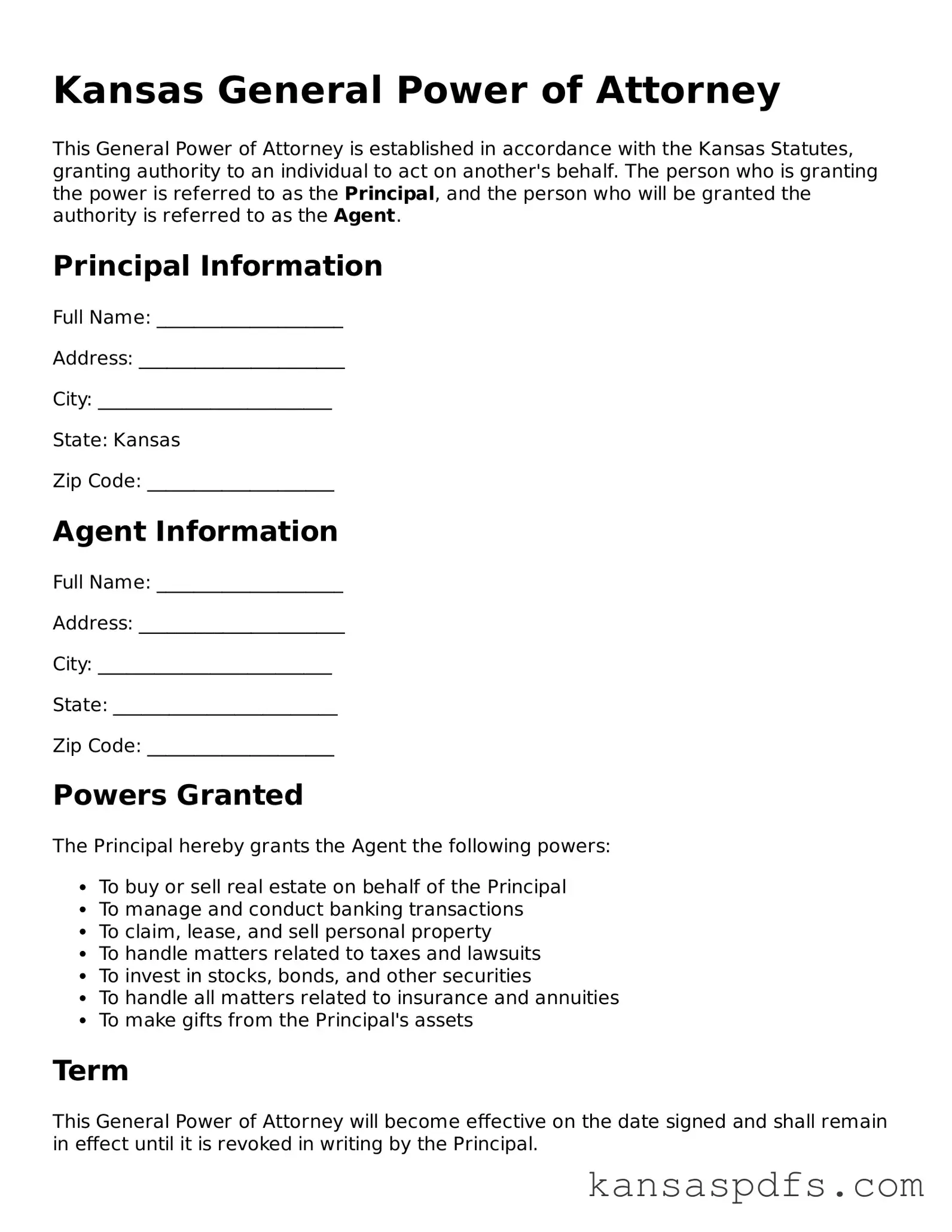Blank Kansas General Power of Attorney Document
A General Power of Attorney form in Kansas is a legal document that allows one person, known as the principal, to delegate decision-making authority to another person, known as the agent, in a wide range of matters except healthcare decisions. This authorization can include managing financial transactions, buying or selling property, and handling other personal affairs. Those interested in establishing such an arrangement can streamline the process by filling out the Kansas General Power of Attorney form conveniently by clicking the button below.
Get My Form Now

Blank Kansas General Power of Attorney Document
Get My Form Now

Get My Form Now
or
Free PDF
Finish this form without wasting time
Finish your General Power of Attorney online with quick edits and instant download.